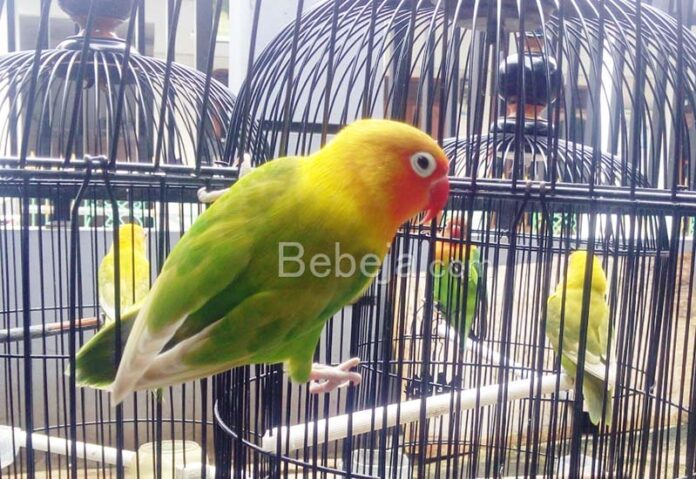In breeding of lovebirds, the key to success lies in the parents. The best lovebird parents are those with champion blood and are between 3 and 4 years old. Additionally, the parents should have a long, rhythmic, and continuous squeaky voice that lasts at least 45-50 seconds.
To match lovebird parents, place them in separate cages and gradually bring them closer together. If the parents are compatible, they will bring their beaks closer to each other within a week. Next, combine the two parents in one cage for 2-3 days, ensuring they do not attack each other.
Once they are fully matched, move them to a 60 cm x 40 cm x 40 cm cage with a perch. In one of the corners of the cage, create a nest using a 15 cm x 15 cm wooden box. This box will be useful when the female lays eggs and broods.
During the breeding period, provide the lovebirds with a mixture of half a cup of white millet, 2 cups of brown rice, and 2 cups of sunflower seeds. Ensure that drinking water is always available and add vitamins to increase the fertility of both parents. Vitamins can also improve endurance.
Typically, after 1-1.5 weeks, both parents will display signs of sexual desire, with the male attempting to approach the female to mate. When these signs are observed, it is important to maintain a quiet environment around the cage to ensure the female is comfortable laying eggs. A noisy atmosphere can cause stress to the birds. Within a week of mating, the female will lay 4-6 eggs, which she will incubate for 21 days.
Once the eggs hatch, it is recommended to allow the female to feed the offspring. To ensure the mother’s stamina during weaning and to guarantee adequate nutrition for the babies, feed the mother a mixture of sweet corn, millet, sunflower seeds, and walnut kernels. Grains provide essential vitamins, protein, and carbohydrates, regulate body temperature, and enhance metabolism. At 2 months of age, the chicks are fully grown with complete feathers.
